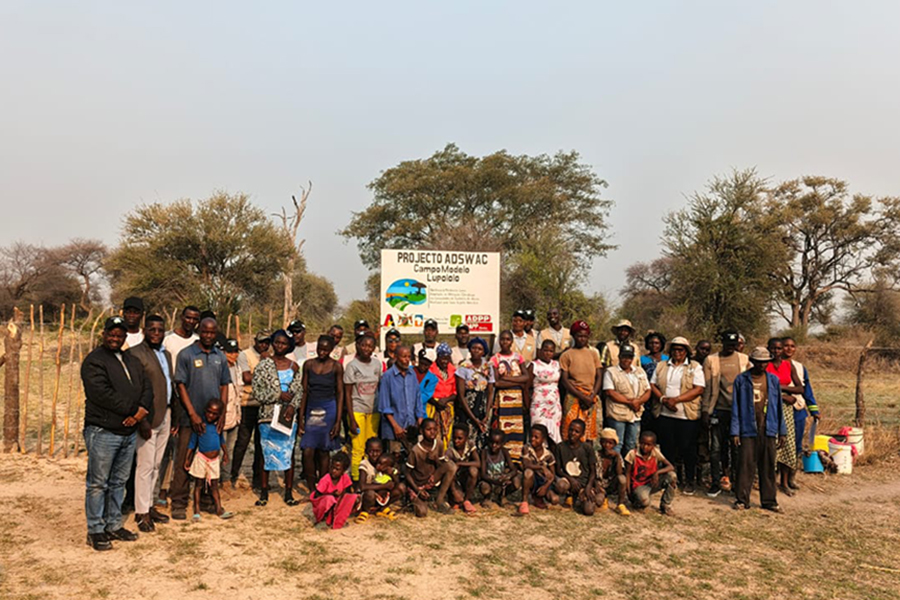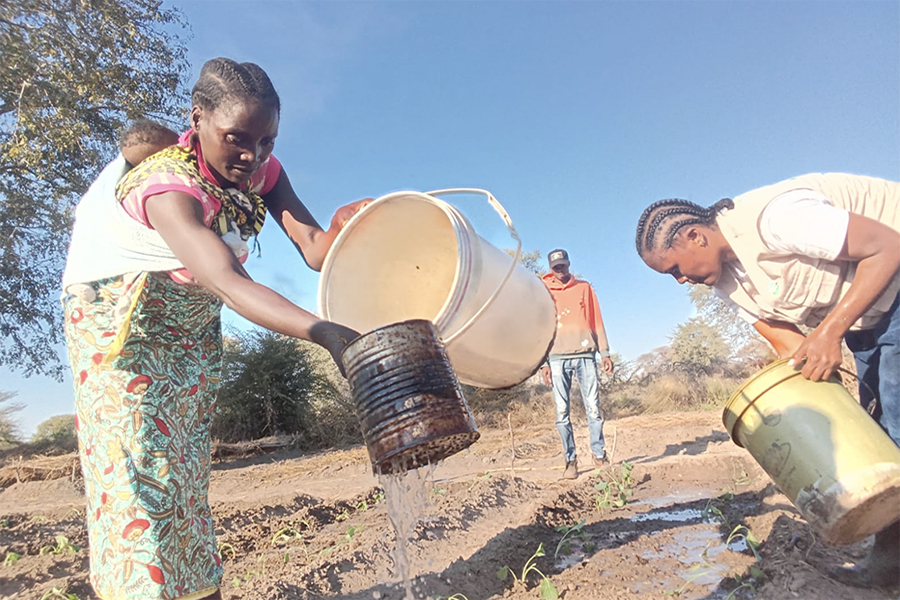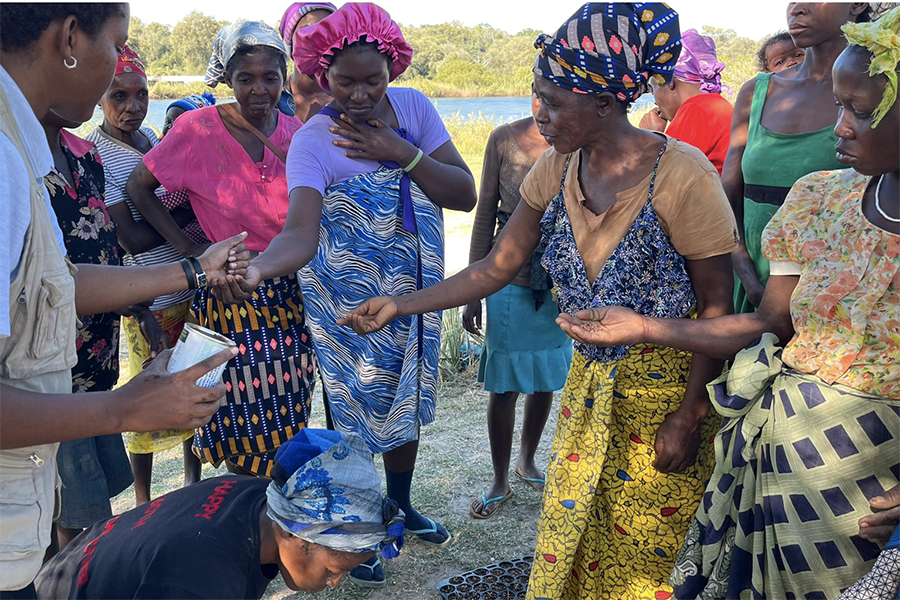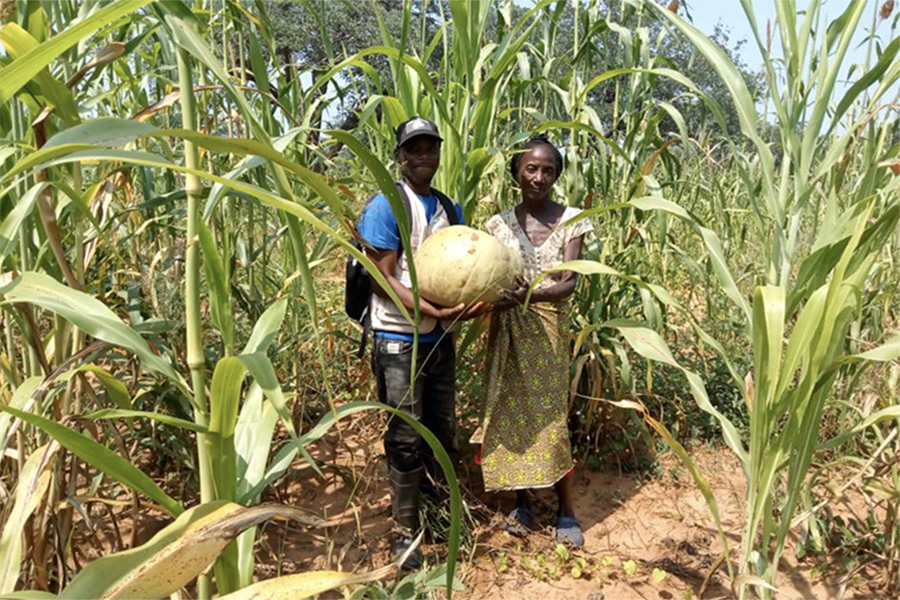ADPP Angola launched the CREW Project – Climate-Resilient Women – Angola, on January 26 in Ondjiva, Cunene Province, in partnership with the Ministry of Environment and OSS, with support from the Green Climate Fund.
The ceremony was chaired by the Secretary of State for the Environment, Iury Valter de Sousa Santos, representing the Minister of Environment. In his speech, the official highlighted that the main objective of the project is to strengthen the climate resilience of rural communities through a transformative gender approach, addressing the growing challenges posed by climate change in southern Angola.
The CREW Angola Project focuses on enhancing the adaptive capacity of rural communities in Cunene, one of the provinces most affected by rising temperatures, irregular rainfall, and prolonged droughts. The initiative spans the sectors of agriculture, environment, water, and nutrition, placing women and youth at the center of solutions for climate resilience. The primary beneficiaries are women household heads, subsistence farmers, and other groups in highly vulnerable situations, with direct impact on their families and communities.
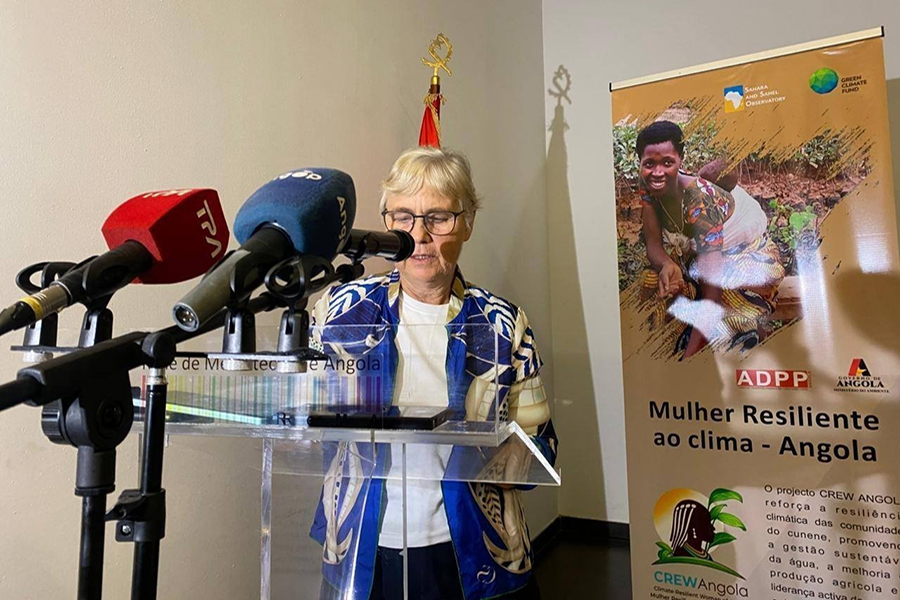
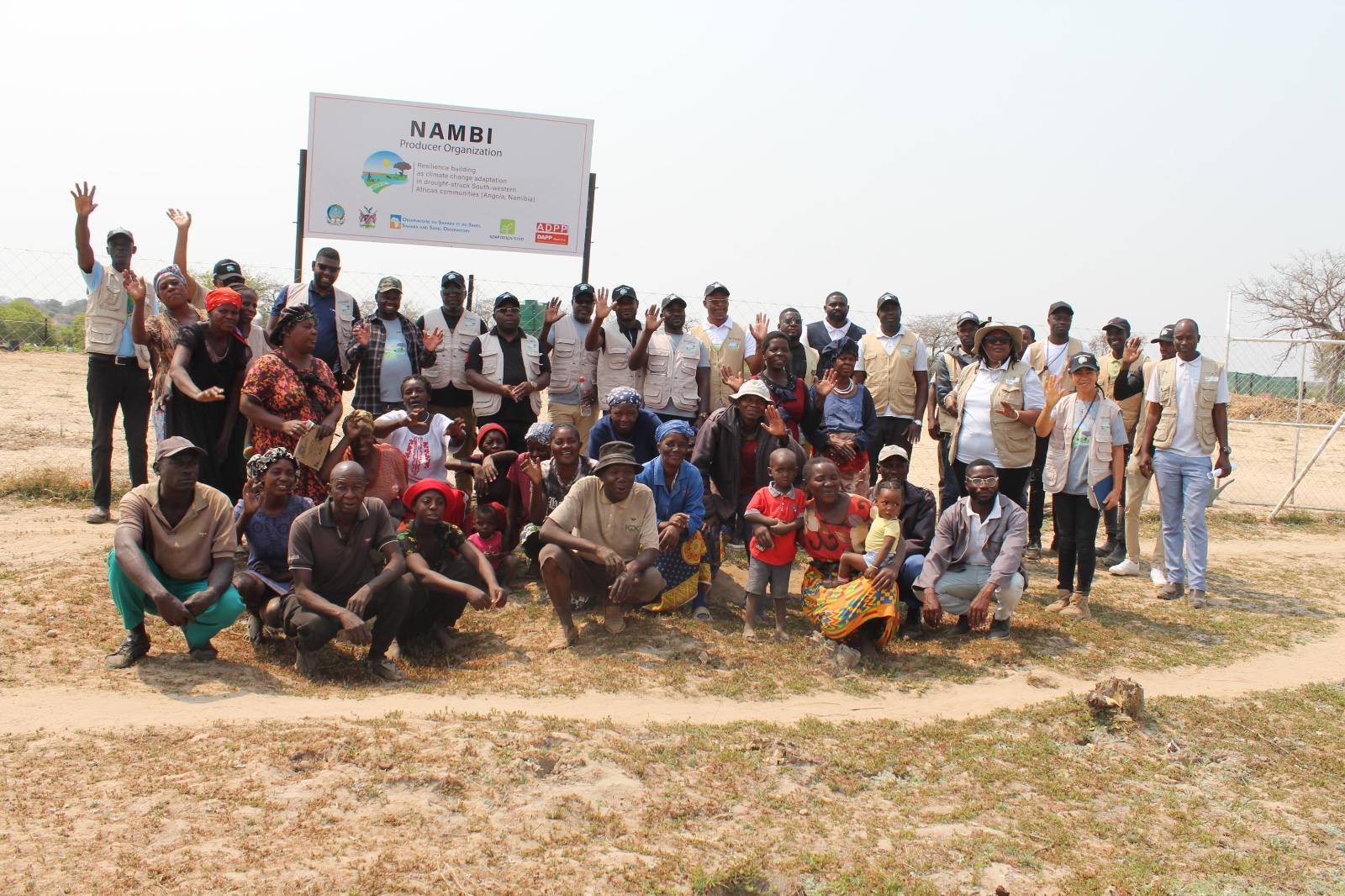
The delegation of the ADSWAC Project Regional Steering Committee carried out a field mission in Angola and Namibia from 26 to 29 August, as part of its 4th ordinary meeting, which took place in the city of Rundu.
The aim was to assess the project’s implementation, identify challenges, propose joint solutions, and closely monitor the activities carried out by producer organizations (POs) in both countries.
The Rundu meeting brought together representatives from the Ministries of Environment of Angola and Namibia, the Provincial Governments of Okavango, Cuando and Cubango, the Municipal Administration of Calai, GABHIC, and the OKACOM Permanent Commission. Also present were national representatives from ADPP Angola and DAPP Namibia, along with the ADSWAC technical team.
Mission in Angola
In Angola, the delegation worked in the municipality of Calai, Cubango Province. The members were welcomed by the Deputy Administrator, José Kamuanga, who highlighted the importance of the visit and reaffirmed the administration’s commitment to supporting local development initiatives.
The mission included a visit to the construction site of the Regional Climate Change Action Centre, which will aim to promote research and build capacity in climate adaptation best practices.
Also in Calai, the delegation visited the Lupololo Producer Organization, where they observed progress in community-based agricultural work, considered essential to strengthening food security, environmental sustainability, and the socio-economic development of the region.
Mission in Namibia
In Namibia, the committee members visited the communities of Rugcuza, Nambi, and Ruparo, where they met with producer organizations and directly engaged with local farmers. The exchange served to assess progress, share experiences, and consolidate dialogue around strategies for climate change resilience.
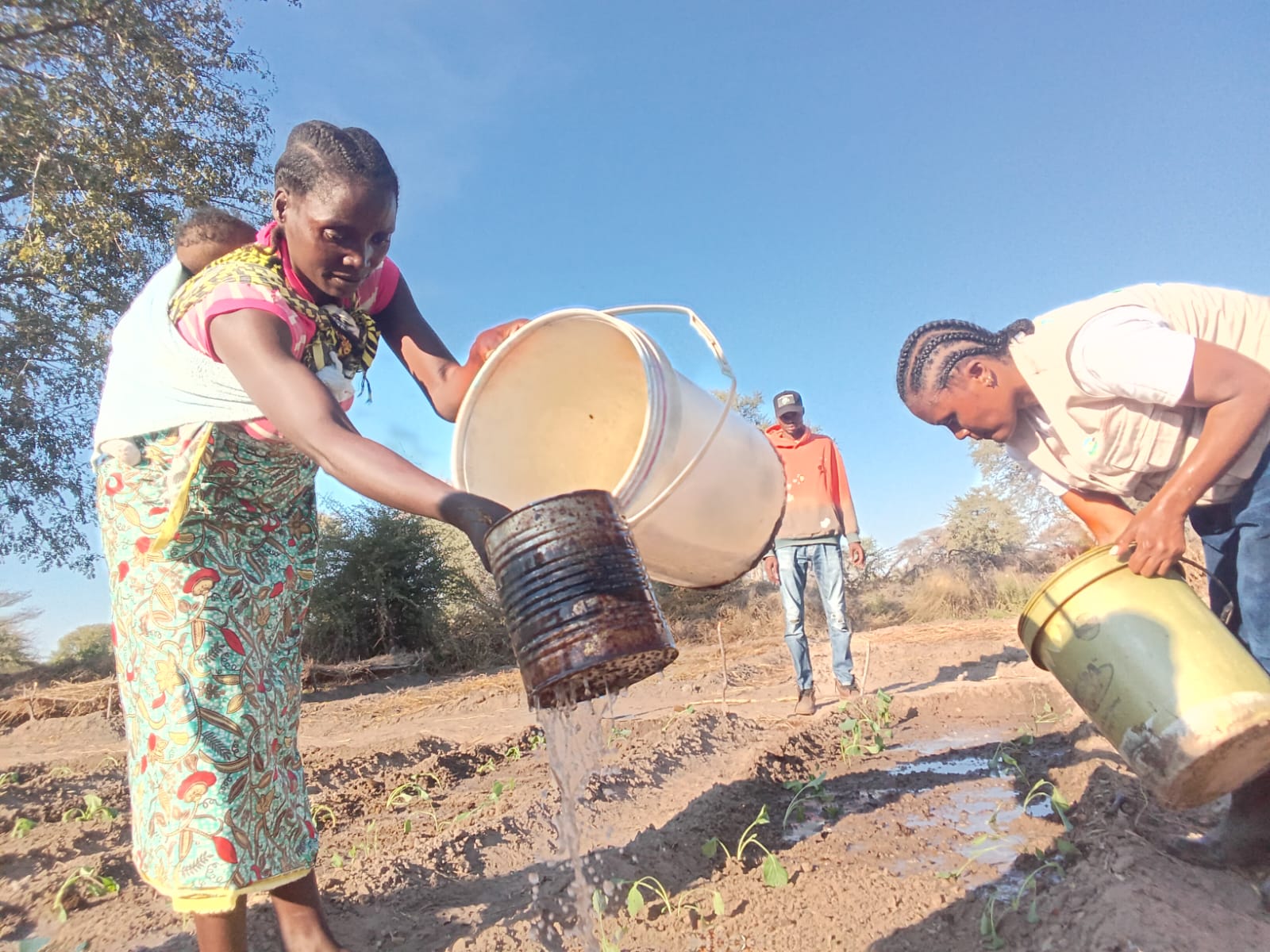
As part of Activity 3123 of the ADSWAC project, the National Executing Entity (NEE) in Dirico is implementing actions aimed at establishing nurseries and seed banks to strengthen environmental resilience and food security in local communities.
At Producer Organization (PO) No. 4, located in Tune, a community nursery has been established with various fruit and medicinal plant species, namely lemon, passion fruit, and moringa. The initiative actively involved community members, who received hands-on training in nursery production and maintenance techniques, thus contributing to the sustainability of local agricultural practices.
In parallel, a training cycle targeting Producer Organizations has begun in the municipality of Dirico, covering topics such as agricultural storage systems and the selection of seeds suitable for the rainy season. The sessions used practical examples tailored to the local context, promoting the adoption of effective and locally adapted solutions.
In the municipality of Calai, the Producer Organization of Lupololo completed the development of its Community Adaptation Action Plan (CAAP), marking a decisive step in strengthening local resilience and implementing concrete measures to adapt to climate change.
Also in Calai, the 1st Meeting on the Community Adaptation Action Plan took place, during which the six essential steps for its development were presented. The main topics discussed included:
- Understanding climate change
- Analyzing the local context and identifying observed changes
- Diagnosing root causes and defining solutions for the main challenges
These actions are part of the ADSWAC Angola–Namibia project, which aims to empower border communities to face the challenges posed by climate change, promoting sustainable practices and integrating traditional knowledge with innovative approaches.
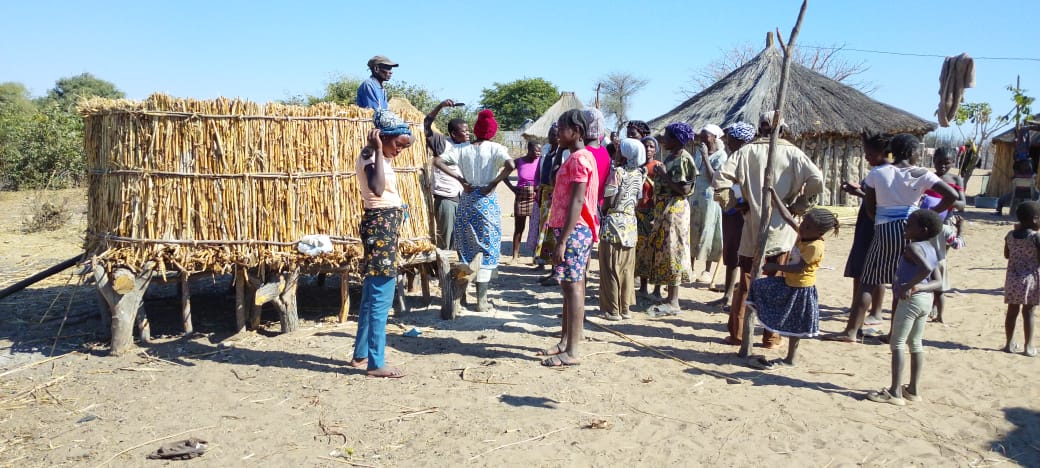
The ADSWAC project is driving agricultural and community development in Angola through strategic and sustainable actions.
The project’s technical team benefited from intensive training in management, leadership, and strategic planning, with the aim of improving the effectiveness of community interventions.
In Cuangar, farmers have adopted organic composting as a practice to improve soil fertility, increase productivity, and strengthen climate resilience.
In addition, ADSWAC continues to support local solutions to reduce post-harvest losses and combat food insecurity in rural areas, promoting sustainability and food security.
Learn more about ADSWAC Angola by clicking on https://www.adswac.org
In the three target municipalities of Angola, ADSWAC adopts a structured, participatory, and sustainable approach to strengthening food security. Among other activities, it focuses on reducing post-harvest losses, improving the quality of stored food, increasing household income, and promoting food security.
In the municipality of Cuangar, the project has equipped vulnerable communities with practical knowledge, enabling them to effectively address the agricultural and climatic challenges characteristic of the region. Through ongoing training of members of producer organizations and local communities, the project covers all stages of the production chain—from soil preparation to harvesting and proper storage of products.
In the communities of Aironga and 17 de Setembro, around 80 producers actively participate in training activities, both in group sessions and individualized support (such as training and community meetings). The training content is tailored to the local context, focusing on the use of resources available within the community.
The techniques taught aim to prevent losses caused by pests, diseases, delayed harvesting, and inadequate storage. In addition, participants are trained to calculate food reserves taking into account irregular climate patterns, ensuring supply even during prolonged periods of drought.
The project also includes training in seed selection and preservation, the creation of community seed banks, and strategies for market access—promoting the value of local products and the commercialization of surpluses.
In this way, the ADSWAC project has established itself as a leading actor in promoting food security and strengthening the resilience of rural communities in the face of climate change, significantly contributing to sustainable development in the Cuando and Cubango regions.
Read more about the project here:
https://www.adswac.org/en/




